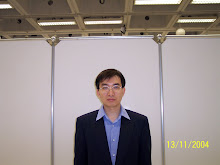With the advancement of computer and Internet technology, various Computer-Based Tests (CBT) have been developed to facilitate the application of language test. Amongst all, perhaps the most popular one may be the CBT TOEFL and GMAT, which are very familiar to HK students, as well as to students in other locations all over the world.
The fast development of CBT is obviously due to its advantages in terms of large data base, convenience in management, instant feedback and probably apparent low cost. However, the public still have some reservation on how accurately these CBTs represent the true language ability of students, as most of the CBTs are assessed in the form of multiple choice questions. As time goes on, more and more sophisticated CBTs will be developed which allow further tests on writing and speaking abilities, but still subject to certain limitations. Nevertheless CBT will continue to develop but its validity and authority may subject to criticism until there comes a consensus in the whole society that such computer-based tests can represent one's language ability at large, even not thoroughly.
The fast development of CBT is obviously due to its advantages in terms of large data base, convenience in management, instant feedback and probably apparent low cost. However, the public still have some reservation on how accurately these CBTs represent the true language ability of students, as most of the CBTs are assessed in the form of multiple choice questions. As time goes on, more and more sophisticated CBTs will be developed which allow further tests on writing and speaking abilities, but still subject to certain limitations. Nevertheless CBT will continue to develop but its validity and authority may subject to criticism until there comes a consensus in the whole society that such computer-based tests can represent one's language ability at large, even not thoroughly.
